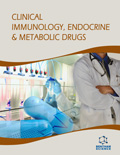Abstract
This study was performed to investigate the relationship between markers of inflammation in serum, severity of injury and clinical outcome and also to evaluate the predictive value of these markers for major complications and mortality. We recruited patients of either sex aged ≥16 years and upto eight hours after trauma with severe condition and SBP ≤90 mmHg at the time of admission in Emergency Department of the Trauma Centre. Blood samples were collected at different time points on day 0, 3, 7 and 14 to measure the serum level of cytokines and compared with severity scores of the patients. Baseline serum levels of IL-10 and TNF-α, together with the IL-10: TNF- α ratio had a significant prognostic value as these values were significantly higher in patients who died within 72 hours of injury. We noticed that among patients, serum levels of TNF-α significantly discriminate the survivors from the non-survivors. Serum levels of IL-6 and IL-10 were significantly (p<0.005) elevated in patients who died early (<72 hrs) from those who survived and it showed positive correlation with SOFA score and also discriminated the survivors from non-survivors. Serum levels of TNF-α, IL-10 and IL-6 on day 0 showed good accuracy for predicting the occurrence of early mortality (<72 hours). The present prospective study is the first largest series from India and provides an evidence of correlation between serum levels of IL- 6, IL-10 and TNF-α with injury severity and the incidence of MODS in THS patients.
Keywords: Injury severity score, interleukin, multiple organ failure, sepsis, shock index, trauma.
 15
15

